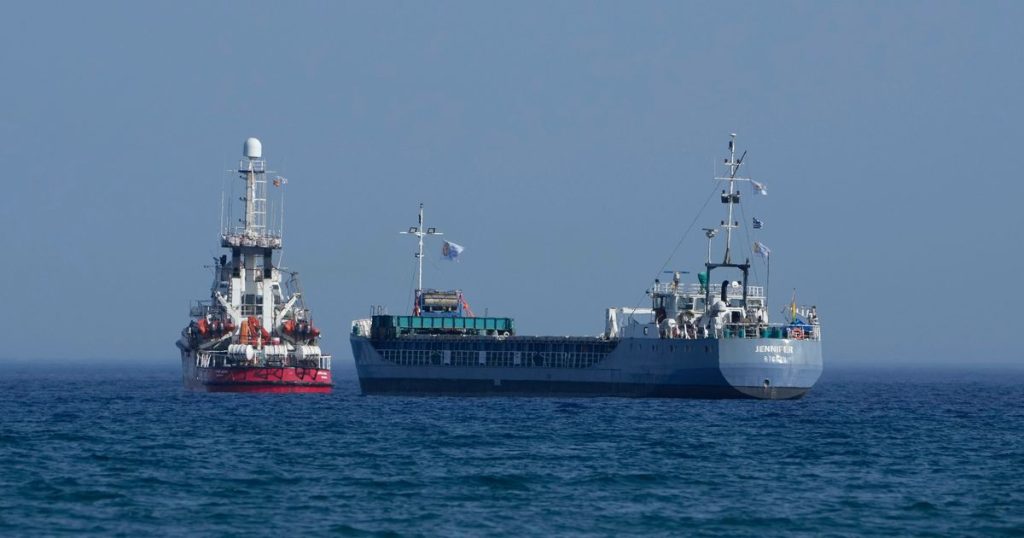A three-ship convoy carrying 400 tons of food and supplies for Gaza left Cyprus amidst concerns about hunger in the region. The World Central Kitchen organized the shipment, which included ready-to-eat items like rice, pasta, flour, canned vegetables, and proteins. The convoy also had dates, traditionally consumed to break the fast during Ramadan. The United Nations has warned of a possible famine in northern Gaza as early as this month, emphasizing the need for Israel to permit more aid deliveries by road to address the humanitarian crisis.
Meanwhile, the United States welcomed the formation of a new Palestinian autonomy government, viewing it as a step toward political reform. The Biden administration hopes to revitalize the West Bank-based Palestinian Authority in anticipation of its potential to administer Gaza post-Israel-Hamas war. Palestinian President Mahmoud Abbas appointed U.S.-educated economist Mohammad Mustafa as prime minister, although this has been rejected by both Israel and Hamas. Notably, the Palestinian Authority lacks popular support due to its security collaboration with Israel in the West Bank. The war, initiated by Hamas-led militants in southern Israel, has led to numerous casualties on both sides, with ongoing tensions regarding Palestinian governance.
Reconstruction and humanitarian aid in Gaza remain critical challenges following nearly six months of warfare that have devastated critical infrastructure and displaced a significant portion of the population. Local health authorities report over 32,000 Palestinians dead due to airstrikes and Israel’s ground offensive. The conflict has pushed Gaza towards famine and intensified health crises, with the majority of casualties being women and children. Israel’s military continues to conduct strikes in Gaza despite calls for a cease-fire by the United Nations Security Council. Aid shipments, including a U.S. military airdrop, aim to address the urgent needs of civilians affected by the conflict.
Questions persist regarding the future administration of Gaza, with Israel asserting it will maintain security control over the region and collaborate with non-affiliated Palestinians post-war. The role of the Palestinian Authority in Gaza remains contentious, with Hamas opposing its governance and urging a power-sharing government among all Palestinian factions. The potential for national elections, which have not occurred for almost two decades, adds complexity to the political landscape. Hamas warns against collaboration with Israel, threatening individuals who cooperate with death. The issue of governance in Gaza will be essential in addressing reconstruction challenges and advancing peace in the region.
Overall, the conflict in Gaza underscores the urgent need for humanitarian aid, reconstruction efforts, and political dialogue to mitigate the impact of the war on civilians. The involvement of international organizations, such as the United Nations, in facilitating aid shipments and peace negotiations is crucial in addressing the complex dynamics of the region. The formation of a new Palestinian government, while met with skepticism from various parties, represents a potential step towards political reform and stability. As the situation in Gaza remains volatile, continued efforts to address humanitarian crises, rebuild infrastructure, and promote dialogue are essential for long-term peace and security in the region.


